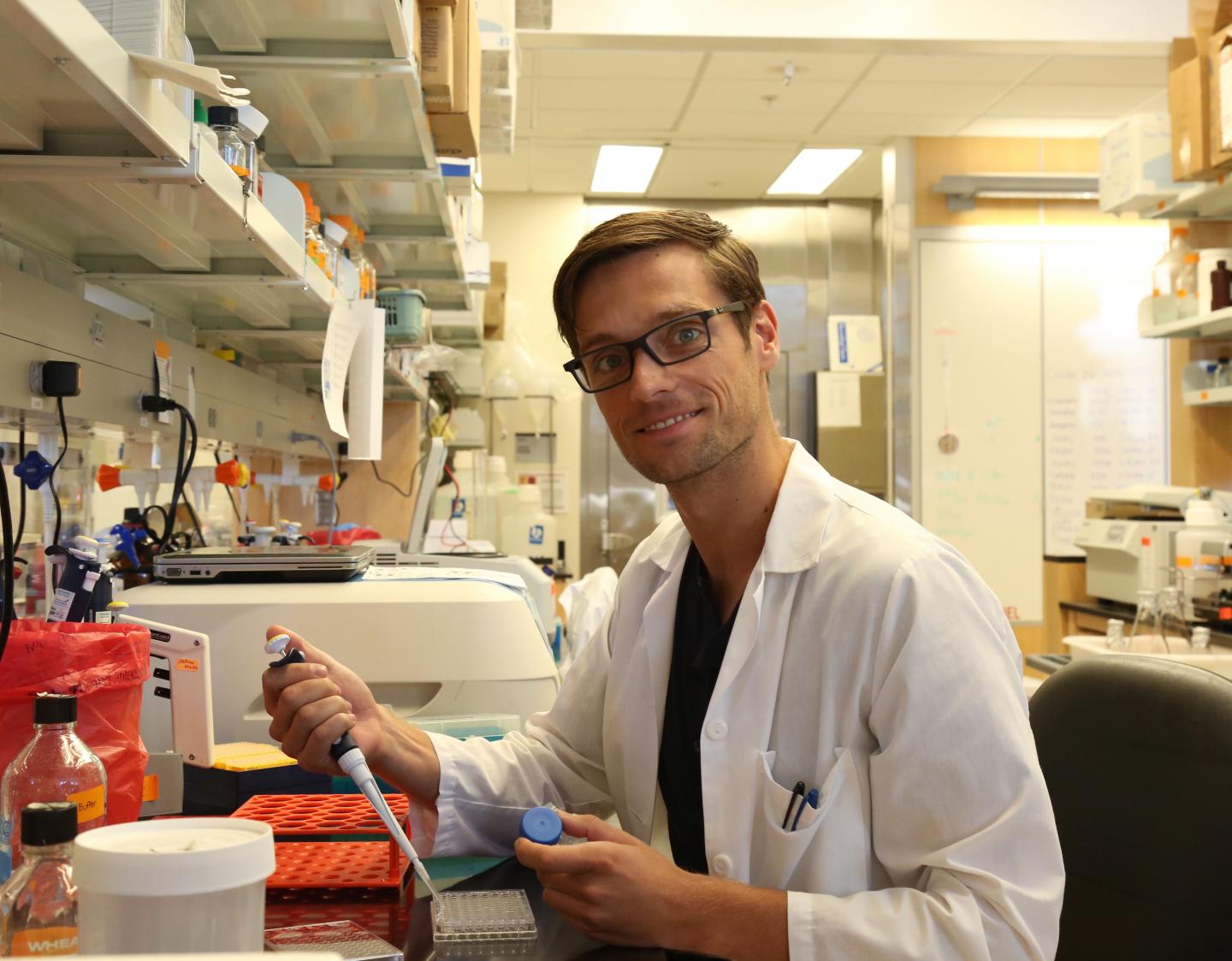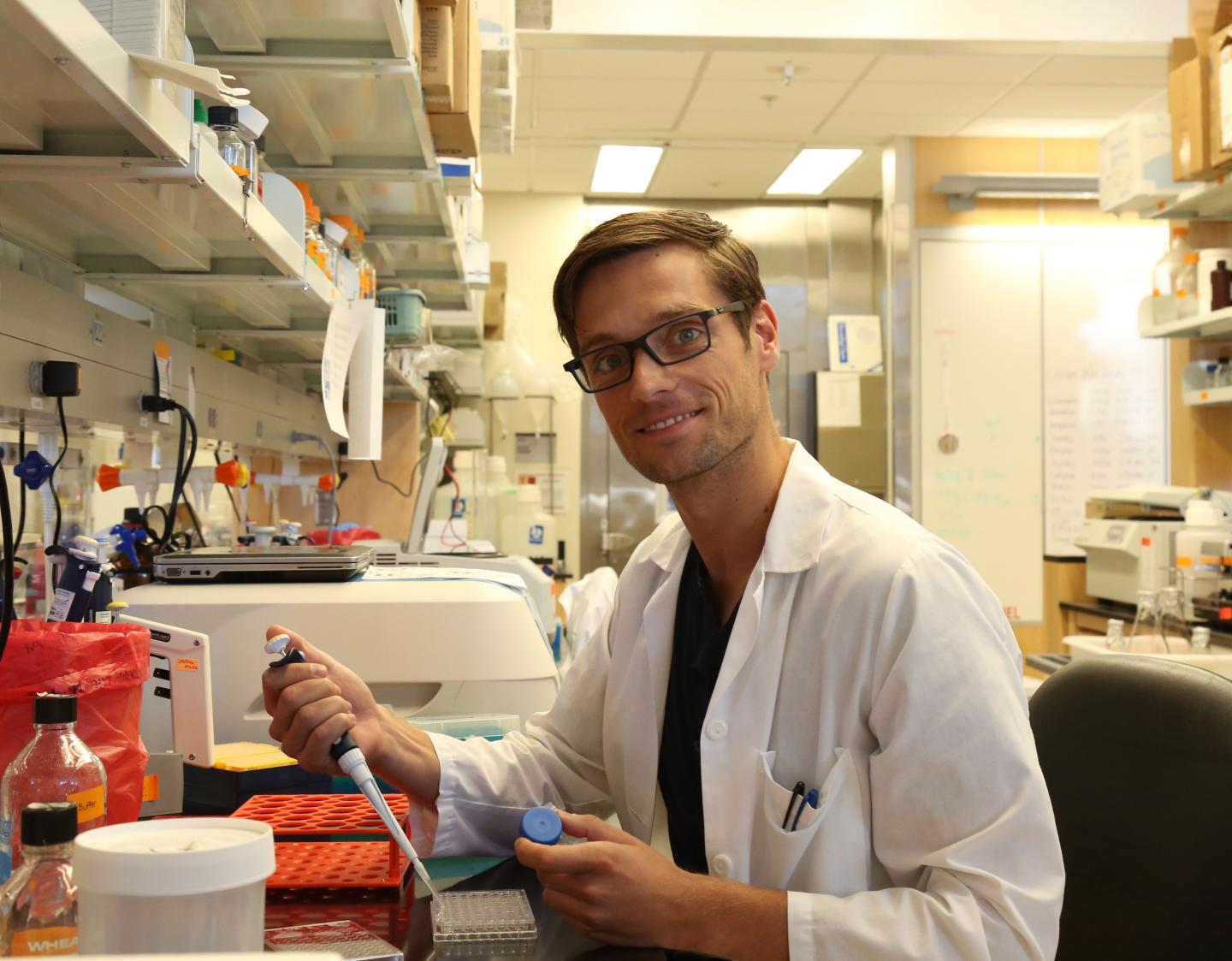
Credit: Caroline Curran, UNC School of Medicine / UNC Health Care.
CHAPEL HILL, NC – Two researchers at the UNC School of Medicine have been named to a global consortium for Zika research and vaccine development.
Aravinda de Silva, PhD, professor of microbiology and immunology, and Stefan Metz, PhD, a post-doc in de Silva's lab, make up one of only two U.S. teams to be named to the European Union-funded worldwide initiative. Sponsored by the European Union's Horizon 2020 Programme, the consortium is investing $49 million in Zika research across the globe.
Metz described the consortium as a collaborative method to tackle the Zika virus, which the World Health Organization (WHO) declared a public health emergency in February 2016. The role of de Silva and Metz in the context of this global research collaborative is the development of novel diagnostic tools.
"It is very difficult to diagnose people several months after they have been infected with Zika," Metz said. "The existing diagnostics cannot be used to distinguish Zika virus infections from, for example, previous dengue virus infections, so the need for new and reliable diagnostics is very important."
Additionally, they are developing a nanoparticle vaccine, which Metz said will potentially be safer than other vaccines currently in development.
"We are developing a nanoparticle-based vaccine platform, which is different from a lot of other vaccine platforms because we're only using sub-unit parts of the virus, instead of using the whole virus," he said. "It's a different kind of platform, which has a lot of advantages."
The lab has had positive results so far, specifically "good antibody responses," Metz said.
"One of the major advances of this vaccine platform is safety," Metz said. "You limit yourself to only a very specific part of the virus and that takes away a lot of problems, especially because we haven't completely determined how previous infections of other viruses such as dengue affect immunity.
"It's very likely that people who have been infected with Zika have been exposed to dengue," Metz said. An estimated 390 million people are infected with dengue worldwide each year, according to the WHO. De Silva's lab is currently working on a dengue vaccine, through a similar nanoparticle platform, as well.
Metz attended the consortium's inaugural meeting, which was held in Recife, Brazil, a metropolitan area with 3.7 million residents that is considered the epicenter of the Zika outbreak.
"The Brazilian doctors brought us to a hospital in Recife," Metz said. "We went to the pediatrics department, where they were treating were babies for Zika-related conditions. There's so much wrong with these babies. In addition to having microcephaly, they can be blind, they're deaf, they cannot speak, some of them are obese though they cannot even eat or swallow, and they suffer from spasms."
Since the outbreak began, more than 2,000 infants in Brazil have been born with microcephaly, a rare neurological condition in which an infant is born with a much smaller head than other infants the same age – an effect of abnormal brain development, according to the WHO.
"It's terrible. But that was a very valuable experience because it highlighted the reality of the Zika virus and what we're working to try to prevent," Metz said. "You can see it on the news, you can read about it in medical journals, but if you actually see these young mothers with these helpless kids, it's terrible. It's a huge problem that we must address."
According to the most recent Centers for Disease Control and Prevention statistics, more than 4,000 cases of Zika have been reported in the United States, 953 of which are pregnant women. When expanded to include all U.S. territories, more than 28,000 cases of Zika have been reported, including more than 2,000 pregnant women.
The other U.S. team included in the consortium is the La Jolla Institute for Allergy and Immunology in La Jolla, California.
###
Media Contact
Caroline Curran
[email protected]
984-974-1146
@UNC_Health_Care




